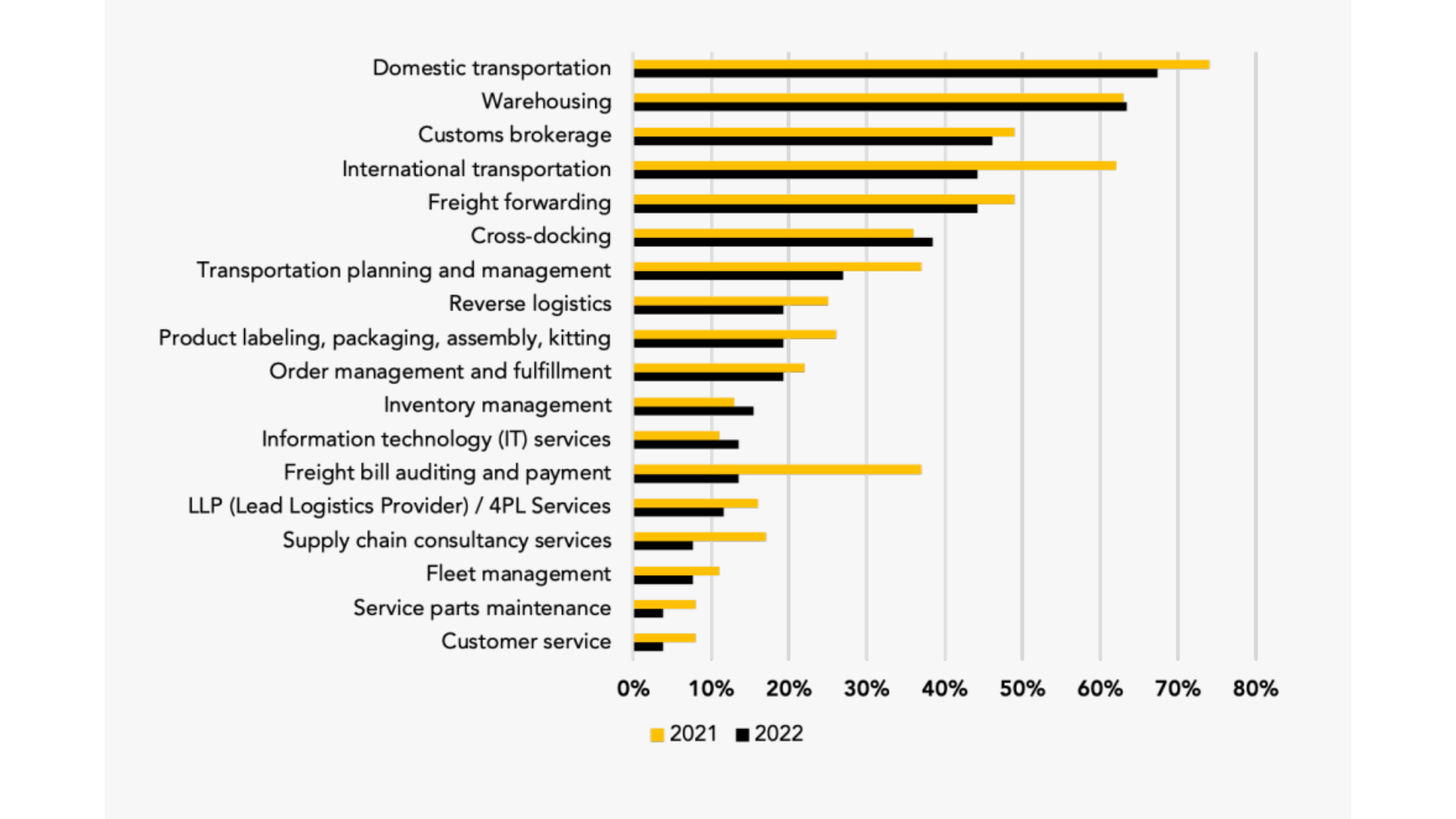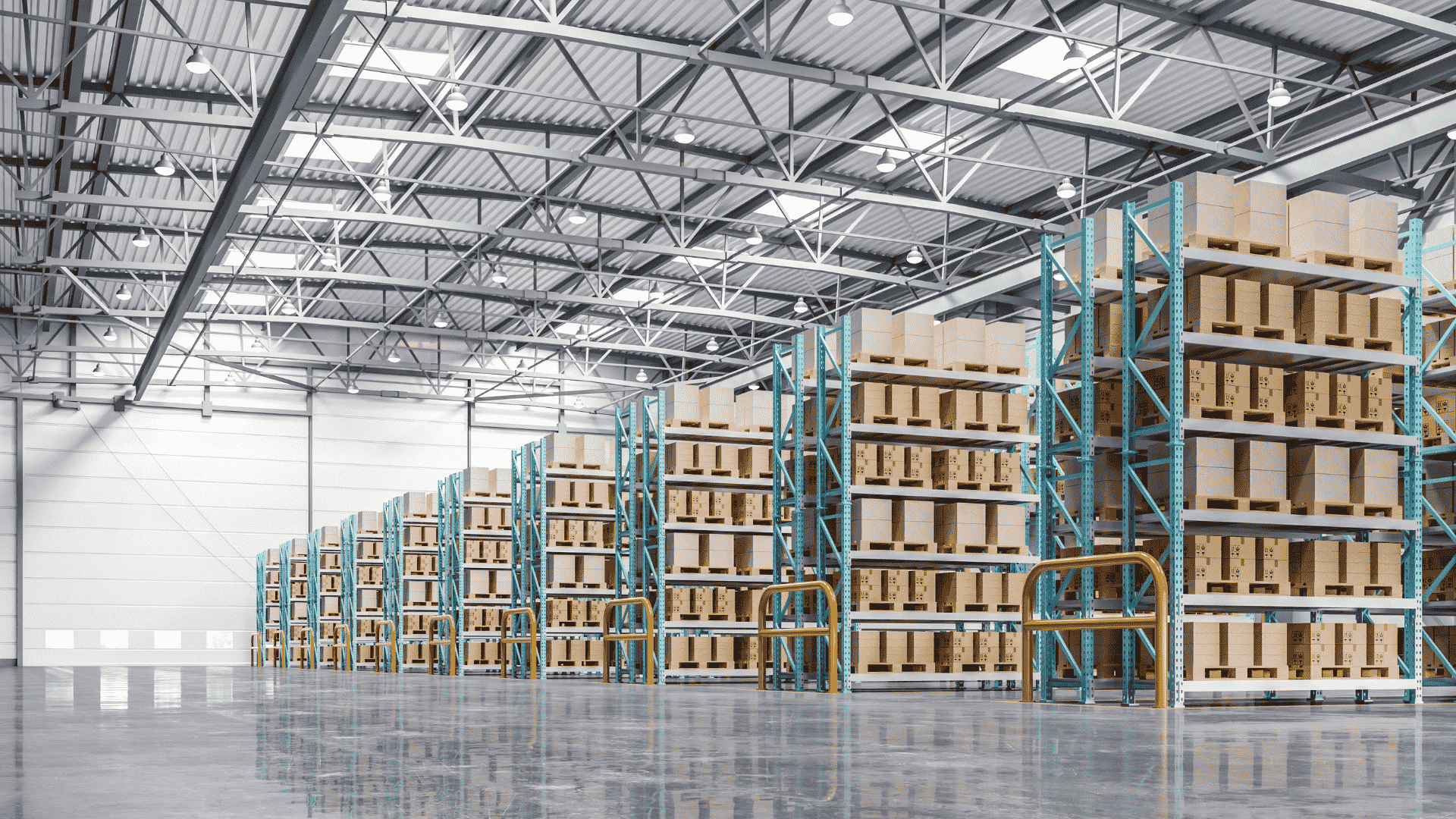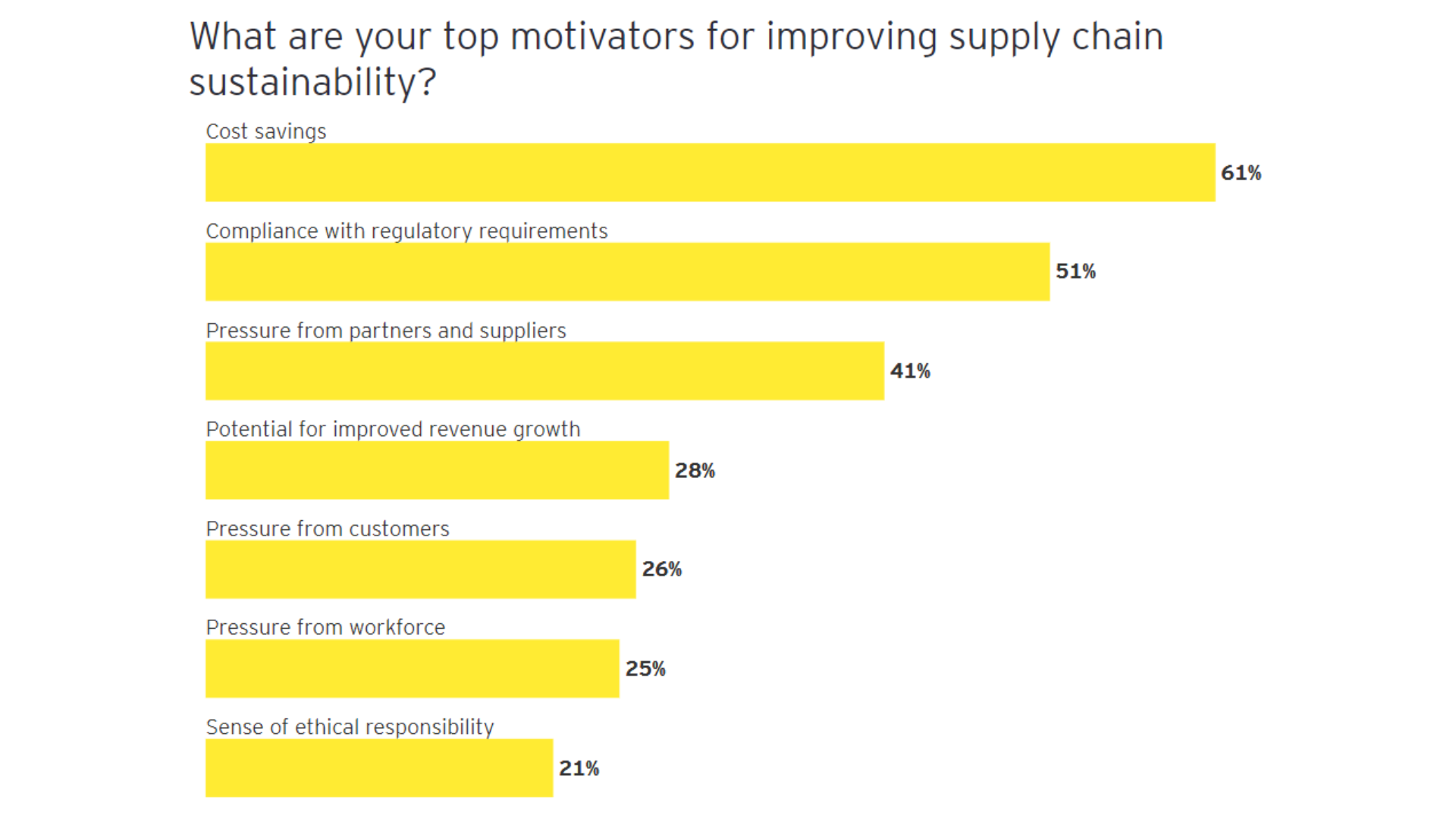News & Insights
Logistics Outsourcing
How to choose the right logistics outsourcing partner
Logistics outsourcing has become increasingly prevalent, with numerous companies delegating their operations to third-party logistics providers.
The global logistics industry has experienced a rapid transformation due to the acceleration of pre-existing trends by the COVID-19 pandemic. Among these changes, logistics outsourcing has become increasingly prevalent, with numerous companies delegating their operations to third-party logistics (3PL) providers. This strategic move is driven by the desire to conserve resources, cut costs, and improve overall service to consumers. Studies have shown that 3PL services improve the response time, quality, and promptness of deliveries but also reduce supply chain distribution expenses.
Contract logistics, a vital facet of this outsourcing trend, extends beyond transporting goods. It represents a comprehensive approach integrating traditional logistics with various supply chain management processes. Projections indicate that the global contract logistics market is poised for expansion, with an anticipated Compound Annual Growth Rate (CAGR) of 4.62% by 2027.1 As the number of companies providing contract logistics services grows and the competition becomes starker, how to choose the right 3PL partner?

Domestic transportation is the most frequently outsourced activity, followed by warehousing and customs support (Source: 26th Annual Third-Party Logistics Study)
Look for Global Partners Offering Customized Solutions
Global businesses require customized solutions supported by agile systems that help manage their complex and dynamic supply chain operations. Each company has its specific requirements. Thus, understanding the product, target market, demand flows, and special handling requirements is vital to improve efficiencies. A well-suited global partner tailors solutions to meet the specific needs of the company, enabling them to focus on their core competencies and sustained success. Instead of requiring successful companies to adapt, the logistics provider should customize their approach to align with the company's requirements seamlessly.
Due to its scalability, contract logistics caters to the needs of both small and large organizations by enabling the outsourcing of specific services or stages in transportation and warehouse management. Global providers can provide appropriate solutions, from basic track and trace to fully integrated offerings.
Bundle Services for Agility
The supply chain of global shippers is complex and dynamic. One thing that every company is looking for is how to simplify the process. Partnering with one company to outsource logistics services might be the answer. This one-stop-shop model ensures consistency in service levels and improves communication efficiency, championing the partnership model. Moreover, relying on a single contract logistics provider allows for flexibility in utilizing various services according to current needs. For instance, during shifts in demand, you can adjust warehouse space, leverage returnable packaging, or use pooling solutions. It's crucial to ensure that the blend of services is fully interoperable to streamline operations, resulting in cost, time, and resource savings while optimizing the logistics process and providing visibility into the supply chain. This enables your staff to focus on other priorities, letting the system handle daily tasks efficiently.

Working with a single-contract logistics provider means using different services based on your current needs. For instance, you may decrease or increase warehouse square footage for your stored goods in shifting demand.
Choose a Partner that Champions Sustainable Solutions
From environmentally friendly packaging materials and load optimization to the reduced number of shipments and, consequently, CO2-eq emissions - there are plenty of opportunities to prepare your supply chain for the unexpected and create long-term value through a new, improved, sustainable supply chain.
Strengthening the resilience and agility of supply chain operations is a high priority for many companies. So is sustainability. According to the EY, 80% of C-suite executives are increasing their emphasis on environmental, social, and governance (ESG) initiatives.2 Environmental sustainability does not need to be at odds with economic sustainability. Choosing a contact logistics partner that aligns with your company’s values and champions sustainability is therefore crucial.

According to the EY study, financial savings and efficiency are the top motivators for supply chain sustainability transformation.3
Nurture Collaboration
The 3PL company should be more than a service provider. A true partner will intimately understand your unique needs and offer flexibility and a wide array of products to fit the dynamics of your supply chain with sustainability at the core of its existence. This approach will help weather even the biggest challenges faced by your company.
A collaborative mindset and partnership approach that ensures smooth and nimble processes are at the core of Nefab’s operations. This is why, when approached by a customer at the onset of the COVID-19 pandemic, Nefab was able to build and introduce a full-fledged WMS within three months. Moreover, the project significantly reduced CO2-eq emissions and costs by improving efficiencies in operations and transportation. Thanks to Nefab’s dedicated processes and individual approach, the team can help optimize the supply chains today and tomorrow under one roof.
We save resources in supply chains for a better tomorrow.
Want to learn more?
GET IN TOUCH
Contact us to learn more about our smart and sustainable solutions.
LEARN MORE
GreenCalc
Nefab’s own certified calculator measures and quantifies financial and environmental savings in our solutions
Sustainable Solutions
Engineered packaging for sustainable supply chains
Sustainable Materials
Fiber-based packaging and raw materials


